Farooki clears his position on quota protest
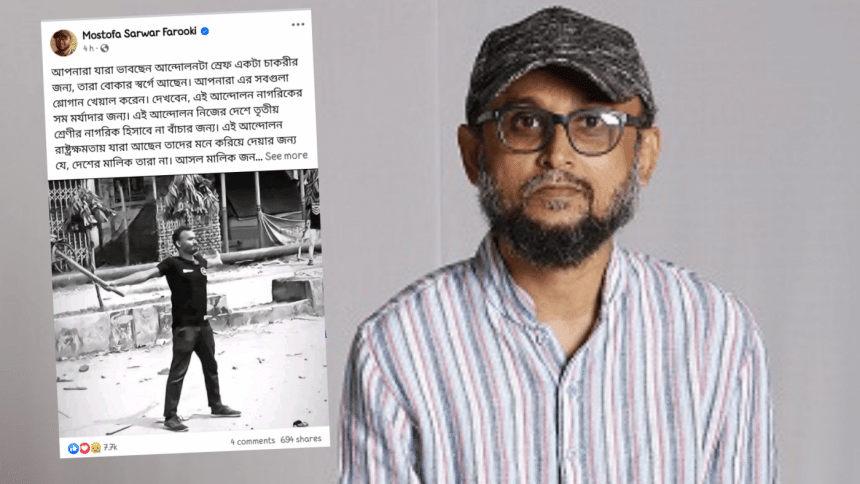
It has been three days since violent clashes between quota reform protesters and Bangladesh Chhatra League (BCL) activists began, creating nationwide unrest.
The incident has also sparked a storm on social media, where celebrities and cultural activists have raised their voices in support of the protesters.
Noted filmmaker Mostofa Sarwar Farooki posted about the matter on his Facebook page.
"Those who think the movement is merely for a job are living in a fool's paradise," writes the "Doob" director. "Please review all these slogans carefully. You'll see this movement is for the equal dignity of citizens."
Farooki further states, "This movement is not to survive as third-class citizens in our own country. It's to remind those in power of their duty to the nation, recognising that they are not the owners of the country. It is the common people who actually own the state. This movement also conveys a message against those who deny the people their rightful place in the state. Activists understand why those in power do not value the common people. At least I have observed this through these slogans."
"The term 'public servant' is quite apt. It should always refer to any elected representative or any government-salaried person. This movement is attempting to remind those public servants that they owe explanations for each of their actions. All power to the people, all power to the youth. Prayers for my fellow citizens, the martyr's blood never goes in vain."
The director also shared a personal disclaimer, adding that the lengthy text had been transcribed by someone else as he is not in complete health after his illness a few months ago.
"For those who know my physical condition, they will know that I don't use social media as often as I used to. A couple of days ago, I posted about the quota protest, which I later removed because after I post something, it creates excitement and the urge to write more such posts, and the more I get engaged on social media, the more it hampers my physical health. I am still fighting for my well-being, and I believe I can be spared a little for my health."
Farooki expressed his grief towards the online news portals and social media users after he removed the previous post. "Unfortunately, many labeled me as an agent, which is why I have chosen to remain silent."
Farooki's statement further highlighted, "The danger of social media now is that every day I have to prove who I am! If they had researched my Facebook posts a bit, they would understand who I am, what I have said, and why I repeatedly fall into trouble. There's no research, just labeling me as an agent without any basis. Today's binary trend is whether you're with me or against me. I wrote an article back in 2014 titled 'Kintu Ebong Jodir Khoje,' published in Bangladesh Pratidin. It's important to remember this was during the Shahbagh movement."
"In 2013, when the Shahbagh movement began, a binary narrative emerged saying 'Kintu Ebong Jodi' (if and but) would be associated with those accused of being collaborators like the Razakars. I even wrote a few days ago, 'questioning freedom itself is freedom!' I wore that 'If and But' tag like a garland around my neck."

 For all latest news, follow The Daily Star's Google News channel.
For all latest news, follow The Daily Star's Google News channel. 




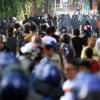
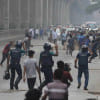
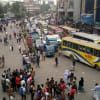
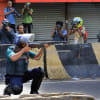


Comments